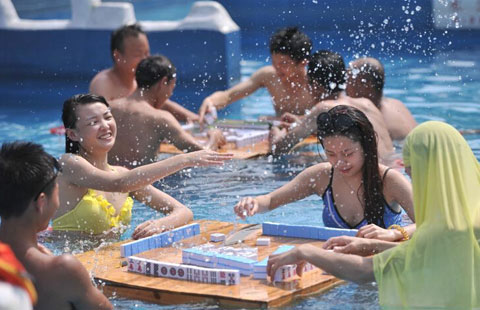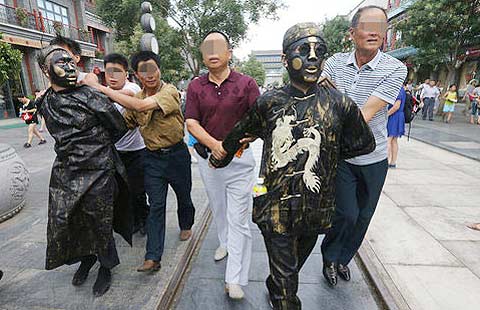EU extends sanction relief on Iran to November 24
Updated: 2014-07-22 09:53
(Xinhua)
|
|||||||||||
BRUSSELS - The European Union (EU) has extended the suspension of restrictive measures on Iran over its nuclear programme until November 24, the Council of EU Monday said in a statement.
Under the sanction relief specified in the Joint Plan of Action, the Islamic republic could continue parts of its international oil trade, which is the pillar of the country's economy.
"The suspension allows: the provision of insurance and transport in relation to Iranian crude oil sales to current customers, the import, purchase or transport of Iranian petrochemical products, as well as trade in gold and precious metals with the Iranian government and its public bodies,"the statement said.
Meanwhile, in the duration of next four months, the increase in thresholds for authorising financial transfers to and from Iran also remains in force, according to EU's decision.
EU foreign policy chief Catherine Ashton and Iranian Foreign Minister Mohammad Javad Zarif last Saturday announced jointly to extend the Iranian nuclear talks for another four months till November 24, as stakeholders still have "significant gaps on core issues."
Meanwhile, the Joint Plan of Action, known as the interim deal which should have expired by July 20, has also been extended till November 24.
Iran and the six world powers "reaffirmed that they will continue to implement all their commitments described in the Joint Plan of Action in an efficient and timely manner," Ashton said earlier in Vienna.
The interim deal approved by Iran and P5+1 last November in Geneva, was designed to buy time for negotiations. Under the deal, Iran would suspend some sensitive nuclear activities in exchange for limited sanction relief.
There have been multiple rounds of negotiations between Iran and the so-called P5+1 -- the five UN Security Council permanent members: the US, UK, France, China, Russia, plus Germany.
But in recent months, the talks for a final deal stalled as the two sides are still far apart on some core issues, such as Iran's future enrichment capacity.
Iran's supreme leader Ayatollah Ali Khamenei said last Tuesday that Iran needs 190,000 separative work units (SWUs) for uranium enrichment, much higher than the West's anticipation under a comprehensive agreement.
Related Stories
US, EU and Iran to bridge gaps in nuclear talks 2014-07-15 11:07
Kerry hunkers down for 'lengthy' Iran talks 2014-07-15 07:20
Iran eases demands for nuclear capacity at talks 2014-07-04 08:41
China to attend fresh round of talks on Iran 2014-07-02 17:48
Iran rushes to save endangered Asian cheetahs from extinction 2014-06-27 07:22
Iran sending drones, equipment to Iraq 2014-06-26 11:03
Today's Top News
TransAsia crash while landing in Taiwan
Death toll in Gaza mounts to 701
Meat supplier scandal has global reach
Dogs 'capable' of feeling jealousy
Five detained over stale meat scandal
5 more universities set up human rights centers
Rebels likely downed jet 'by mistake'
Jakarta governor wins Indonesian presidency
Hot Topics
Lunar probe , China growth forecasts, Emission rules get tougher, China seen through 'colored lens', International board,
Editor's Picks

|

|

|

|

|

|





